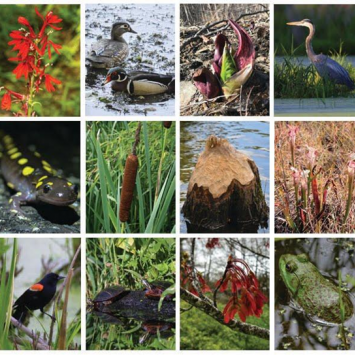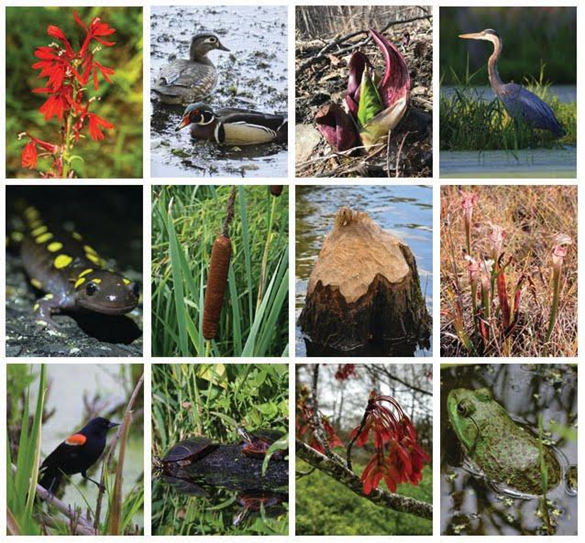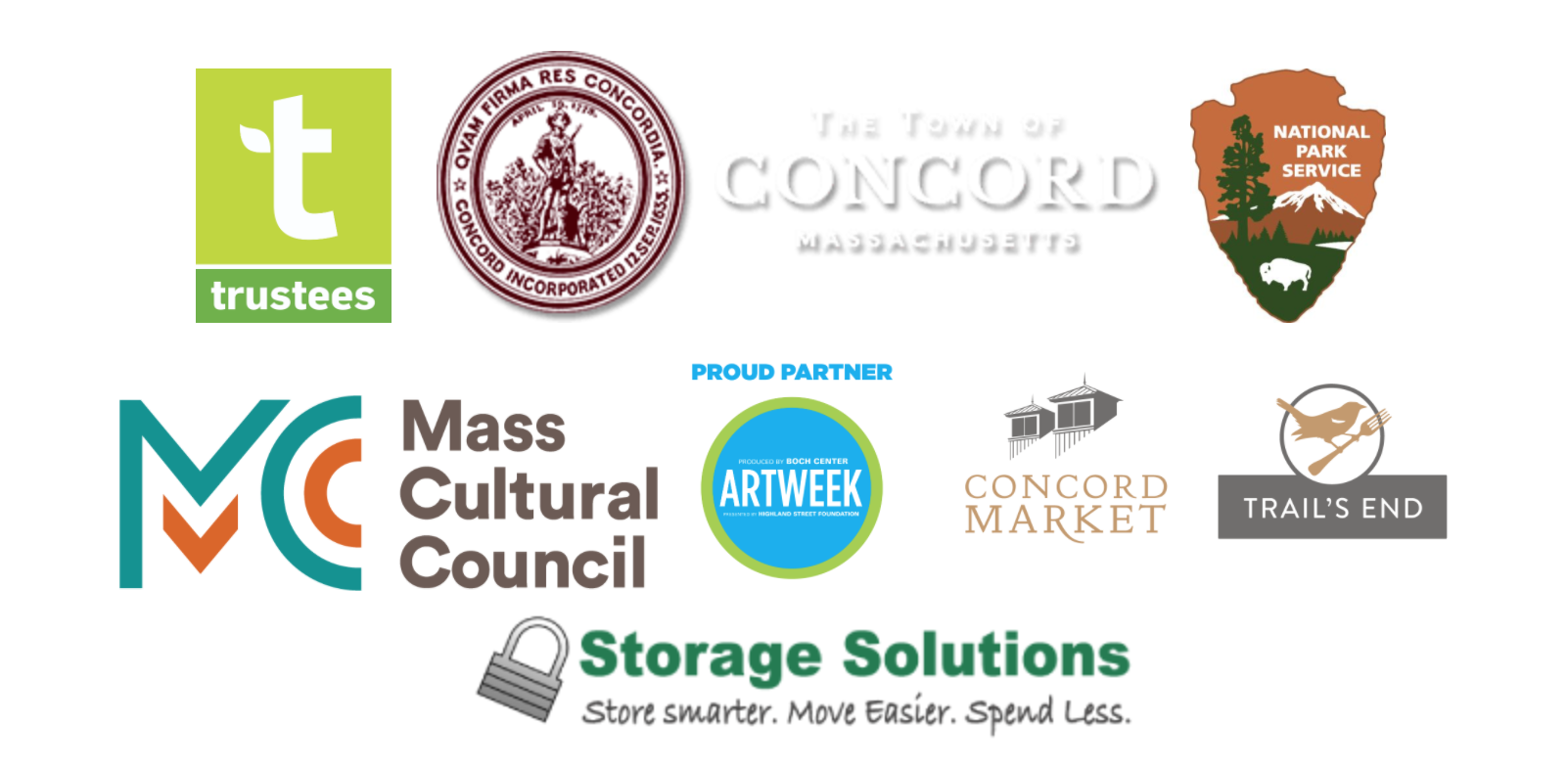EM3050 Activity: Wetland Bingo

Although wetlands are often wet, a wetland might not be wet year-round. In fact, many wetlands are only seasonally wet. Wetlands are the link between the land and the water where the flow of water, the cycling of nutrients, and the energy of the sun produce a rich variety of plant and animal life. Wetlands areas very important features of a watershed.
If you are able to watch a wetland or stream over the seasons, you will see changes. A wetland may be too wet to walk through in the spring, but be dry in the summer.
- Why? Because seasonal changes in rain patterns, including snow melt and, because as trees leaf out in the spring, they start to take up water (evapotranspiration!), which draws down the water table.
There are many reasons why wetlands are so valuable.
- They store and release water depending on storms and seasons providing recharge to groundwater and baseflow to streams and contributing to interesting regional (and local) diversity of plants and wildlife.
- When rivers overflow, wetlands help to absorb and slow floodwaters. This ability to control floods can alleviate property damage and loss and can even save lives.
- Wetlands also absorb excess nutrients, sediment, and other pollutants before they reach rivers, lakes, and other waterbodies.
- They are great spots for fishing, canoeing, hiking, and bird-watching, and they make wonderful outdoor classrooms for people of all ages.
OBJECTIVES
To learn about the importance of wetlands to your watershed. Become more familiar with local wetland habitat areas, plants, and wildlife. Connect with wetland species through identifying them while going for a walk or through research.
MATERIALS
Printout of![]() WETLANDS BINGO
WETLANDS BINGO
Paper, pencil, pens
Articles on wetlands
Trails in conservation lands with wetlands in the Concord area:
- Concord Town Trail Maps & Guides
- A Virtual Tour of Our Lands
- Concord Land Conservation Trust Land & Properties
Wetland plants and birds guides
- Shoreline and Shallow Water Plant Habitats in New England
- Great Meadows, Assabet River, and Oxbow National Wildlife Refuges - Birds
ACTIVITY
- Play WETLAND BINGO! As you explore local wetlands, keep an eye out for the plants, animals, and insect pictured below. Mark each square with an X when you see it!
Consider exploring these wetlands during a different season to see the difference. - If you are playing from your home, put an X in the squares you have researched and learned on the web.
Get 4 in a row – you are a dragonfly!
Get all 4 corners – you are a painted turtle!
Get ALL of the squares – you are a great blue heron!
Note: Some of these species won’t be visible all year. Another option is to find “look-alikes” or to find the early buds, full leaves, or seed capsules from some of the flowers.

Share your photos, journal pages, thoughts, experiences, and/or feedback with us! Post on social media with hashtags:
#umbrellaarts #musketaquid #concordearthday #musketaquidearthday #earthday3050
Or email Caroline at caroline@theumbrellaarts.org
Special thanks to our Earth Month sponsors







